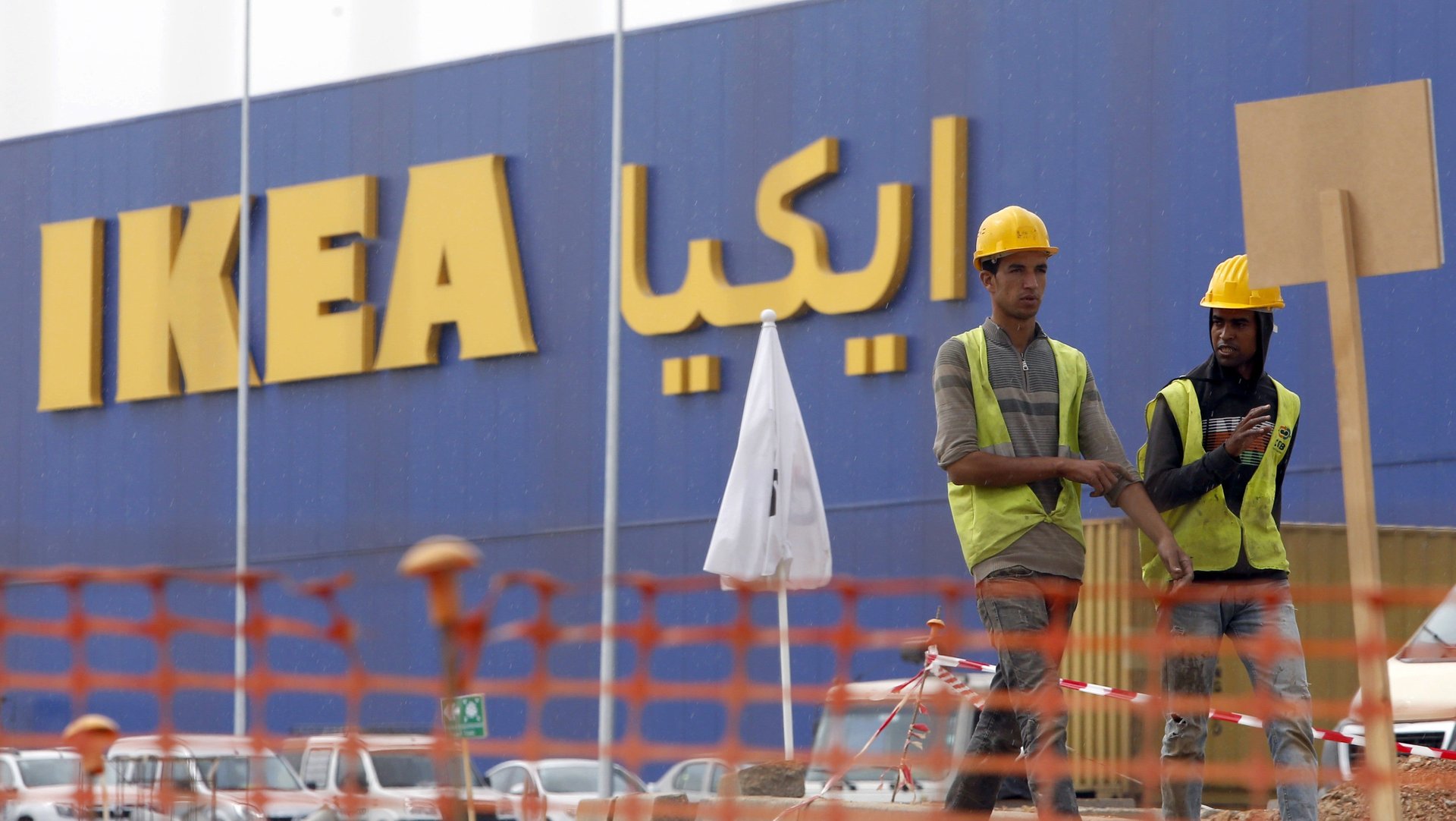Ikea will open in Morocco after Sweden backed down on a Western Sahara spat
Ikea is set to open its first store in Morocco after the government gave the go ahead following months of diplomatic deadlock with the Swedish government. The diplomatic spat was over Sweden’s plans to recognize the independence of the disputed Western Sahara territory.


Ikea is set to open its first store in Morocco after the government gave the go ahead following months of diplomatic deadlock with the Swedish government. The diplomatic spat was over Sweden’s plans to recognize the independence of the disputed Western Sahara territory.
Western Sahara, often described as Africa’s last colony, is a sore spot for the Moroccan government. It claims sovereignty over the phosphate-rich territory after Spain and Mauritania decolonized in the seventies.
The Sahrawis, around half a million of them, represented by the Polisario Front and backed by Algeria claim the right to self-determination and independence. An estimated 90,000 Sahrawi refugees have been living in camps in Algeria for 40 years after Moroccan forces tried to annex the territory. Morocco continues to pour billions of dollars in the mostly desert stretch of land to entice more Moroccans to settle there.
In September last year, Morocco blocked the opening of the Ikea store for not having proper licensing after Sweden had ordered an internal review of its position regarding Western Sahara. It also boycott other Swedish companies such as H&M and Volvo.
After the review, Sweden concluded in January this year that it won’t recognize the Sahara as an independent state paving the way for a thawing in relations with Morocco and for Ikea to add the Casablanca area outlet to its 375 stores worldwide.
“We can only say that we are we are happy to hear that all certificates now are in place so that our franchisee in Morocco soon can open the Ikea doors for the Moroccan customers” said Kaisa Lyckdal, a spokeswoman for Ikea.
When asked about how the political maelstrom between Sweden and Morocco might have caused revenue losses for Ikea, Lyckdal said,“We as a home furnishing company are politically and religiously independent. Ikea is for the people, respecting individuals with different views and opinions”.
But for Aliyen Kentatoui, the Sahara’s Polisario representative in Sweden, sees the reverse decision by Sweden as vintage Moroccan “blackmail politics”.
“It’s consistent Moroccan foreign policy to contravene international law since the beginning of the conflict and disrespect the right to self-determination” he told Quartz. “Instead of finding a political solution, Morocco resorts to pressuring countries to change their stance”.
The United Nations was supposed to facilitate a referendum on the matter of independence since 1991 when it brokered a ceasefire. It has never materialised making the conflict the longest running territorial dispute in Africa.
Kenatoui is still optimistic though that the Swedish public and the government’s stance is overall supportive of the Sahrawis’ cause.
“There’s no recognition now but the door is never closed” he added.
No specific date has been given for when the first store is officially opening but a local website is already up and running.